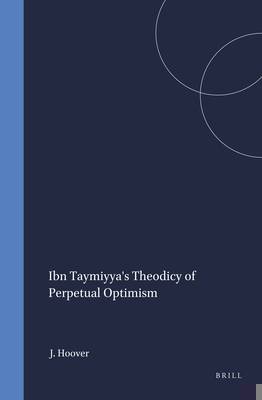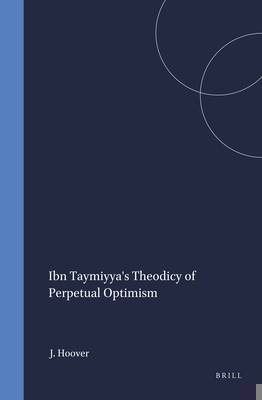
Je cadeautjes zeker op tijd in huis hebben voor de feestdagen? Kom langs in onze winkels en vind het perfecte geschenk!
- Afhalen na 1 uur in een winkel met voorraad
- Gratis thuislevering in België vanaf € 30
- Ruim aanbod met 7 miljoen producten
Je cadeautjes zeker op tijd in huis hebben voor de feestdagen? Kom langs in onze winkels en vind het perfecte geschenk!
- Afhalen na 1 uur in een winkel met voorraad
- Gratis thuislevering in België vanaf € 30
- Ruim aanbod met 7 miljoen producten
Zoeken
Omschrijving
The Muslim jurist Ibn Taymiyya (d. 1328) is famous for polemic against Islamic philosophy, theology and rationalizing mysticism, but his positive theological contribution has not been well understood. This comprehensive study of Ibn Taymiyya's theodicy helps to rectify this lack. Exposition and analysis of Ibn Taymiyya's writings on God's justice and wise purpose, divine determination and human agency, the problem of evil, and juristic method in theological doctrine show that he articulates a theodicy of optimism in which God in His essence perpetually wills the best possible world from eternity. This sets Ibn Taymiyya's theodicy apart from Ashʿarī divine voluntarism, the free-will theodicy of the Muʿtazilīs, and the essentially timeless God of other optimists like Ibn Sīnā and Ibn ʿArabī.
Specificaties
Betrokkenen
- Auteur(s):
- Uitgeverij:
Inhoud
- Aantal bladzijden:
- 284
- Taal:
- Engels
- Reeks:
- Reeksnummer:
- nr. 73
Eigenschappen
- Productcode (EAN):
- 9789004158474
- Verschijningsdatum:
- 28/05/2007
- Uitvoering:
- Hardcover
- Formaat:
- Genaaid
- Afmetingen:
- 150 mm x 226 mm
- Gewicht:
- 566 g

Alleen bij Standaard Boekhandel
+ 497 punten op je klantenkaart van Standaard Boekhandel
Beoordelingen
We publiceren alleen reviews die voldoen aan de voorwaarden voor reviews. Bekijk onze voorwaarden voor reviews.









